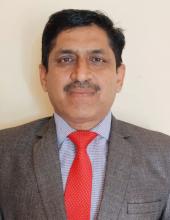Kendriya Vidyalaya Tezpur No.IV (Tezpur University), SonitpurAn Autonomous Body under Ministry of Education, Government of IndiaCBSE Affiliation Number : 200058 CBSE School Number : 39311
- Wednesday, May 01, 2024 18:42:02 IST

I truly believe words
“Fellow citizens, why do you turn and scrap every stone to gather wealth and so little care for your children to whom one day must you relinquish it all?” …… Socrates
Gandhiji’s views about Education
When, in 1937, Gandhiji presented his Scheme of education he called it NAI TALIM, New Education. He knew that a new India would need a new education. His Nai Talim was education transformed to build a new social order based on truth and nonviolence. If we do want our education to become a 'forceful tool' for social transformation there is no way except to adopt the essential features of Nai Talim with such adaptations as may be necessary to meet contemporary needs. One obvious need is to arrest the almost complete erosion of social and moral values. Truth and non-violence are everlasting spiritual values that we have inherited from our past, but when applied to real life, they come closest to the values of modern science and democracy. There are sure indications in the world of thought that sooner than later ground may be prepared for integration between science (truth) and spirituality (unity of life). Democracy (nonviolence) may be a link between the two. That may well lay the foundations of a new culture, far different from the one in which we are living. For a brighter India of tomorrow we need a new culture which combines the best in both science and spirituality. Let our transformed education show the way.
Education is a potent tool of human development.
Mahatma Gandhi ji said: Education is “the basic tool for development of consciousness and reconstruction of society”
The Universal Declaration of Human Rights, 1948 (UDHR) states: “Everyone has the right to education”
Teacher is the medium to achieve this goal.
Mahatma Gandhi ji said: “I have always felt that the true text book for the pupil is the teacher”.
A teacher is a role model who triggers the thought process of his students to realize their true potential. He teaches by ‘practice’ and not merely by ‘precept’.
Kedar Singh
Principal